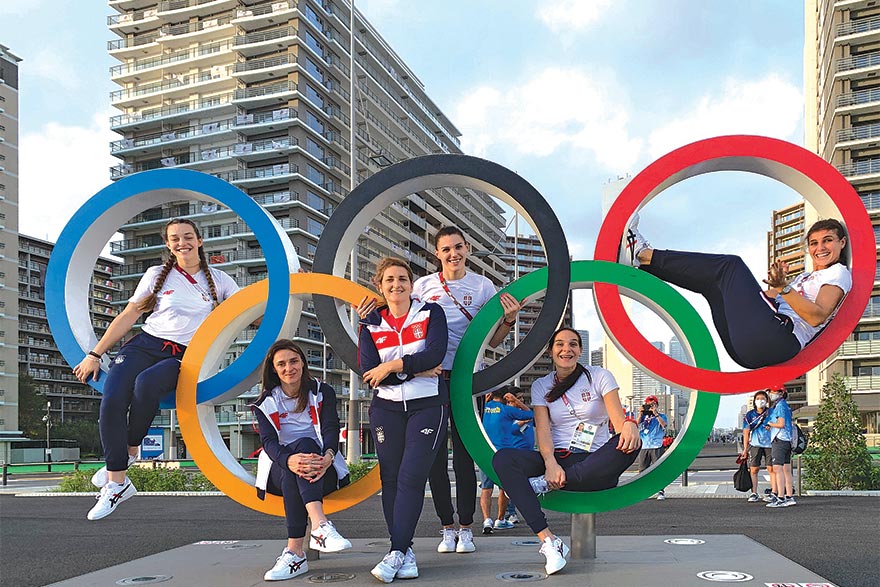Despite all the difficulties caused by the Covid-19 pandemic, the Tokyo 2020 Organizing Committee, in cooperation with the IOC and the Japanese government, found brilliant solutions and successfully organised the Olympic Games, which hardly any other country could organised in the given circumstances. They showed that everything is possible in the spirit of Olympism and Olympic values
The Olympic Committee of Serbia cares for the continuity of performance at the Olympic Games, which is confirmed by the fact that our athletes have not missed a single appearance at the Olympic Games from Stockholm in 1912 until the most recent games in Tokyo in 2021, which only a small number of the largest and most successful countries can boast. The XXXII Summer Olympics were the fourth games held in Japan, after the 1964 Tokyo games (summer games), the 1972 Sapporo games (winter games) and the 1998 Nagano games (winter games).
In many ways, the Tokyo Games were unique. Tokyo was the first city to host the Summer Olympics twice. These are also the first games to be postponed for a year due to the Covid-19 pandemic caused by the SARS-CoV-2 virus and seen as a “beacon of hope for the whole world in difficult times”, while the Olympic flame represented “Light at the end of a dark tunnel”. For the purpose of continuity and reduction of marketing costs, it was agreed that the games will continue to be called Tokyo 2020, despite the change in the date. The games were held without the presence of spectators with an obligation to wear protective masks and comply with all defined protection measures against the virus. For this reason, these Games were historic in that they were held under such circumstances, and that there was no repeat of the history of Tokyo’s hosting in 1940, when the games were cancelled due to the Sino-Japanese war. A record number of countries participated in the games – a total of 206, with 33 sports and 50 sporting disciplines. A total of 339 sporting events were organised, with 11,090 athletes participating.
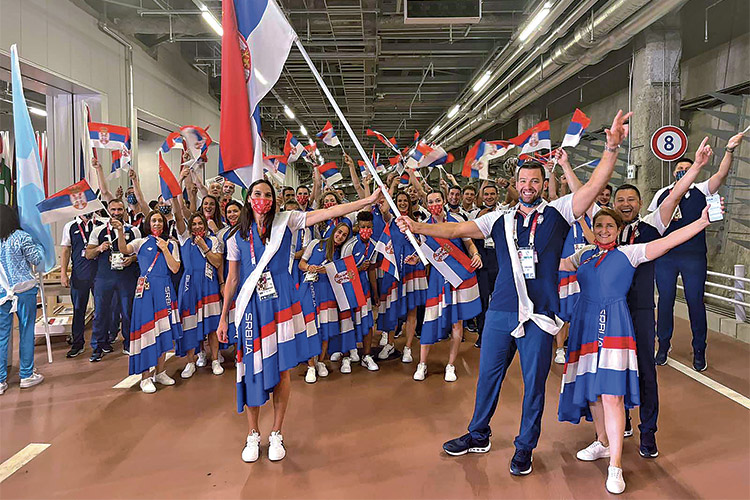
The 140-year-long tradition of Serbian- Japanese friendship was marked by one unforgettable event before the Olympic Games in Tokyo. On 16th April 2021, the Olympic Committee of Serbia, the Embassy of Japan and the Japanese Business Alliance presented Olympic circles made from Japanese cherry trees. In this way, the people of Serbia also had the opportunity to enjoy the famous Japanese custom of observing the flowering of this tree – hanami. The trees were donated by the members of the Japanese Business Alliance as a sign of the eternal friendship between Serbia and Japan, before the Olympic Games and the departure of the Serbian participants to Tokyo. Lanterns on the cherry trees were symbolically lit on the day of the opening ceremony of the Games, 23th July 2021. Emperor Naruhito formally opened the Games at the Olympic Stadium in Tokyo. As part of the traditional “Parade of Nations”, for the first time in history the flag bearers were one female and one male athlete from each country.
The flag of Serbia was carried by Sonja Vasić (basketball) and Filip Filipović (water polo). The closing ceremony was held on 8th August and the flag of Serbia was carried by Jovana Preković (karate). Tokyo is considered one of the world’s metropolises that best show the combination of the traditional and the modern, where alongside glass skyscrapers and robotic restaurants, there are also ancient shrines, ryokan and teahouses. The places where the Olympic Games were held were decorated in the same spirit.
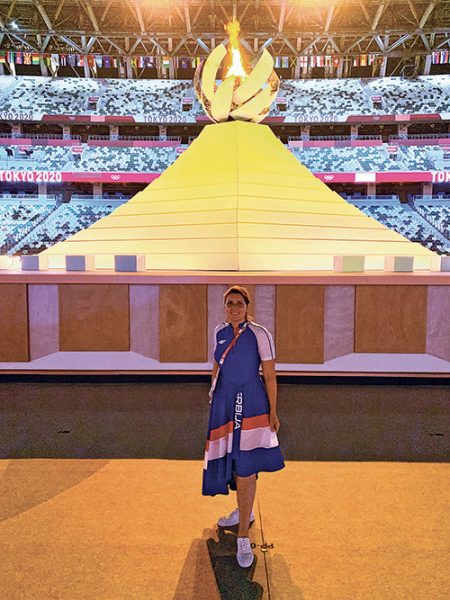
Tokyo is generally aiming for continuous improvement and a tendency of urban transition to become even more modern and advanced, and the Olympic Games were one of the steps on that path. The capital of Japan has once again shown its capacity for innovation, as it did once before, at the XVIII Summer Olympic Games in 1964.
The area where the Tokyo 2020 Olympics were held was divided into two zones, the heritage zone and the Tokyo Bay zone, with the participation of additional facilities within a radius of 8 km. The first zone included complexes used during the 1964 Games, while the second was a set of modern facilities, many of which were connected to the water. In the heritage zone was Nipon Budokan, the spiritual home of Japanese martial arts, where in 1964 the sport of judo was included in the Olympic programme for the first time. At the last Summer Games, a karate competition was symbolically held for the first time. On the other hand, the modern zone of Tokyo Bay was the centre for water sports where, for example, there was a main pool with 10 lanes, and with the help of the latest technology, the length and depth of the pool could be adjusted by moving the bottom and walls. This was not the only display of modern and advanced solutions, as the power was supplied from solar energy.
Although this symbiosis of traditional and modern has always been part of the city’s development and transition plan, with the awarding of the Tokyo Olympics in 2013 the plan evolved. Moreover, the IOC adopted the idea of demanding that future hosts of the games make maximum use of existing facilities, reducing construction costs and emissions of harmful gass. So out of a total of 43 competition facilities, only eight were newly built, 10 were temporary structures and as many as 25 facilities were reused. One of the most prominent was the Yoyogi National Gymnasium, due to its characteristic design, which mixes traditional Japanese and modern Western aesthetics.
In the second zone, in the Harumi coastal district, an Olympic village was built with 21 buildings 14-18 floors high, with a capacity of approximately 18,000 inhabitants. The village lay in a very convenient location between the bay zone and the zone of famous tourist attractions. All the apartments where the members of the Mission stayed were temporary structures and after the Games they were converted into apartments for sale. In the residential part of the Olympic Village there were: a restaurant, a fitness centre, a medical centre (polyclinic), an administrative NOC centre, facilities (containers) for testing for Covid-19 and a temporary Covid-19 hospital.
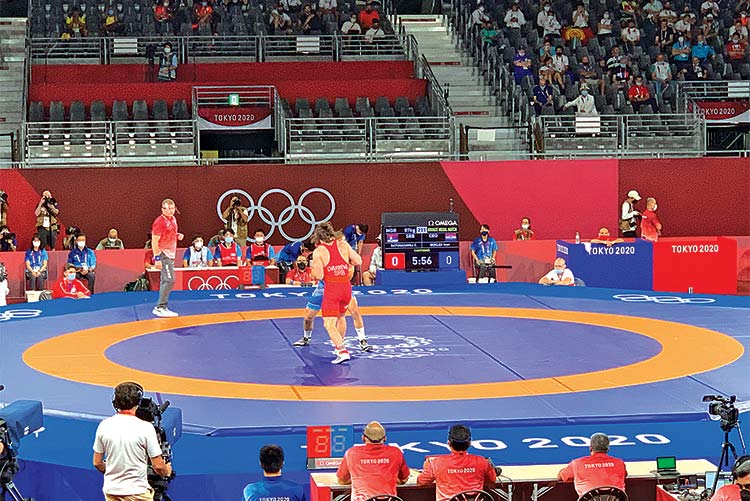
The Serbian Olympic team shared accommodation with the delegations of Slovenia, Uruguay, Ireland, Algeria, Saudi Arabia, Sri Lanka, Pakistan and others. The quality of accommodation met the standard for the Olympic Games, and a special impression was left by the minimalist decoration, with cardboard beds that were recycled after the Games. The restaurant had a choice of 700 dishes. The precautionary measures against Covid-19 were strict and effective, from gloves to disinfectants, even hand washing points, all the way to plexiglass barriers installed between the tables. The same solution was implemented in the gym. In the village, screens were set up with information about the occupancy of various facilities. Because of all this, people began to call these Games surreal. The Olympic sponsor, Toyota, provided specially designed vehicles as a means of transport in the village to facilitate the movement of athletes and other mission members, and vehicles for transport to other facilities and venues.
Due to the specific situation and the ban on movement outside the village, training and competition facilities, the Serbian Mission rearranged the common room in the building that the athletes used for socialising in their free time. Also, when the weather conditions allowed, an openair space was organised in front of the entrance to the building, which athletes and coaches were happy to use. Spontaneous receptions of athletes who won medals were also organised in this area. In this way, we managed to create a good atmosphere among the members of Team Serbia, and athletes and coaches had their own corner where they could exchange experiences and spend quality time together.
The Tokyo 2020 Olympic Games were organised under unusual conditions, with no spectators and the wearing of masks most of the time. Covid officers were an important part of each team and took care to implement all procedures and measures to protect all members of the mission during their stay in Japan and before leaving. Another novelty introduced for these Games were two applications that were used to record the state of health and monitor movements during the Games. One of the obligations of all participants was a daily PCR test.
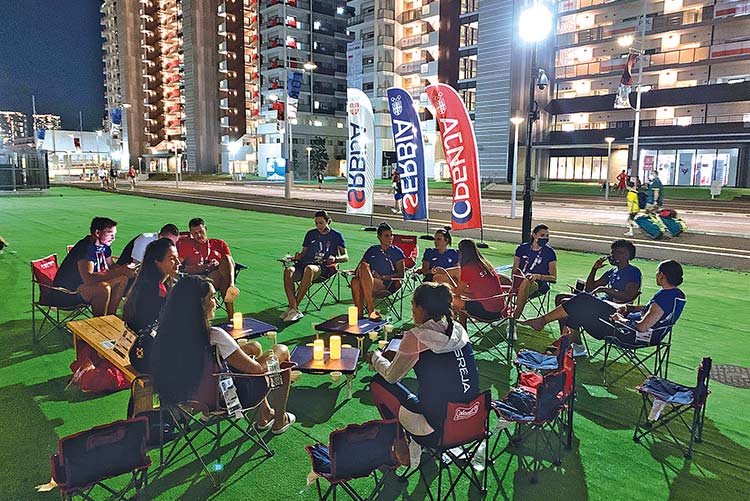
Speaking of communication with members of the Organising Committee of the Games, it is not enough to say that impressions are positive. Although the rules were extremely strict, we encountered great tolerance and willingness among volunteers and other staff to help us in crisis situations. When we needed help to search for the phone of one of the athletes, even after working hours, the volunteers were ready to join us. Always cordial and smiling, the volunteers were respectful, very patient and hardworking and promoted Japanese culture and its traditional values in the best possible way.
Throughout the entire process of preparation for Serbia’s performance at the Tokyo Olympic Games, the Olympic Committee of Serbia enjoyed the unreserved professional help and support of the Embassy of the Republic of Serbia in Tokyo. His Excellency, Ambassador Nenad Glišić and later, before and during the games, Her Excellency, Ambassador Aleksandra Kovač and the entire staff of the Serbian Embassy were involved in the preparation, arrival and stay of the Serbian Team in Tokyo, providing diplomatic and technical support. There is no doubt that the long-standing friendship between Serbia and Japan has greatly contributed to all challenges being resolved swiftly.
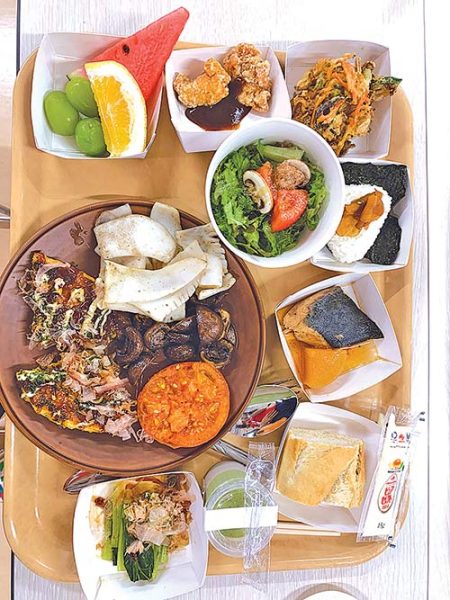
The final impression is that, despite all the difficulties caused by the Covid-19 pandemic, the Tokyo 2020 Organising Committee in cooperation with the IOC and the Japanese government found brilliant solutions and successfully organised the Olympic Games, which hardly any other country could organize in the given circumstances. They showed that everything is possible in the spirit of Olympism and Olympic values.
At the Tokyo Games, the Serbian Olympic team numbered 87 athletes who competed in 16 sporting disciplines. Compared to previous performances at the Olympic Games, the results they achieved can be considered a pinnacle, with 9 medals (3 gold, 1 silver and 5 bronze) and placement in the top 10 in seven sports. We won the largest number of medals since the Seoul Olympic Games of 1988, when we performed as Yugoslavia. The results ranked our country in 28th place for gold medals, or the 26th place in the total number of medals among the 206 countries that participated in the Olympics.
Gold medals were won by: Milica Mandić (taekwondo), Jovana Preković (karate) and the men’s water polo team. Damir Mikec (archery) won a silver medal. Bronze medals were won by: Milenko Sebić (archery), Tijana Bogdanović (taekwondo), Zurabi Datunašvili (wrestling), the women’s volleyball team and men’s 3×3 basketball team.
In addition to athletes, the Serbian mission consisted of 62 officials (coaches, a medical team, mission management) and 2 Covid-19 liaison officers, who were mandatory members of the mission in accordance with a decision of the Organising Committee of the Games and the IOC. We must also praise the exceptional cooperation and correct attitude of the athletes, coaches and members of delegations, as everyone understood the challenges and logistical problems that the OCS mission encountered in trying to provide the best possible conditions for the Serbian Olympic team during the Olympics. The good atmosphere and communication in the Serbian Team among all members of the delegation meant a lot in difficult times.
As head of the Tokyo 2020 mission, I am proud of our team, who with dedication and mutual trust and respect achieved a common goal and provided athletes, coaches and other members of the delegation with the best possible conditions for participating in the Tokyo Olympics.
Nataša Janković, Head of the OCS Mission for Tokyo Olympics 2020
